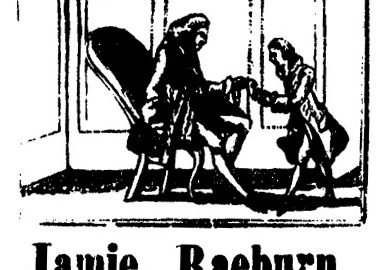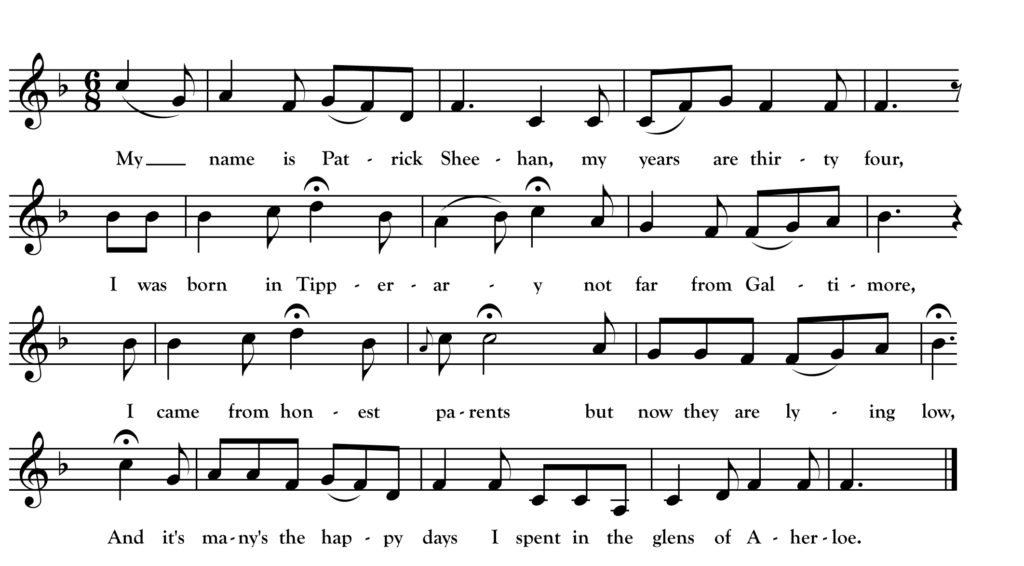Farewell to Caledonia


My name is Willie Rayburn, in Glasgow I was born,
The place of my residence I was forced to leave in scorn;
From home and habitation was forced to gang awa’,
So fare-you-well, you hills and dales of Caledonia.
The crime that I was taken for was robbery and fraud,
I lay the blame on nae one upon this earthly sod;
I lay the blame on nae one, but comrades I had twa,
So fare-you-well, the hills and dales of Caledonia.
It was early the next morning before the break of day,
Our turnkey came to us, those words to us did say,
“Rise up, you pitiful convicts, I warn you one and a’,
This day you leave the hills and dales of Caledonia.”
Then I arose, put on my clothes, my heart was filled with grief,
My friends they gathered around me, but could grant me no relief;
They bound me down in irons for fear I’d run awa’,
So fare-you-well, you hills and dales of Caledonia.
Here is to my old father, he is one of the best of men,
And also to my own true love, Catharina is her name,
No more we will roam by Cylde’s green banks or by the brim awa’,
This day I leave the hills and dales of Caledonia.
Goodbye to my old mother, I am sorry for what I have done,
I hope it ne’er will be cast to her the race that I have run;
I hope the Lord will protect her when I am far awa’,
So fare-you-well, you hills and dales of Caledonia.
We return to the deep and fascinating repertoire of Irish-Minnesotan singer Michael Dean this month for a Scottish song that has a long history in Ireland. Like “Highland Mary” and other songs, “Farewell to Caledonia” likely came from the pen of a Scottish song maker and went to the north of Ireland with the flow of itinerant workers and immigrants between the two islands. It was printed as a broadside in Scotland in the mid-1800s as “Jamie Raeburn’s Farewell” (the song’s narrator is Jamie in most versions). Sam Henry printed a variant from Strabane, County Tyrone in his Songs of the People newspaper column in 1926. The song appears in several Scottish song collections and has been popular with many singers and bands since the folk revival of the 1960s.
Across the Atlantic, the song turns up in Mike Dean’s Minnesota-printed Flying Cloud songster as well as in the repertoires of two New England singers recorded by Helen Hartness Flanders: Sidney Luther of Pittsburg, New Hampshire and Charles Finnemore of Bridgewater, Maine. We have no record of what melody Dean used. Luckily, Finnemore is one of my favorite New England singers so I was delighted to discover the recording of him singing his version in October 1945. Finnemore’s melody is quite close to that sung by Ontario/North Dakota singer Arthur Milloy for the song “Mines of Cariboo” which is a favorite of mine. The above is a combination of Dean’s text and Finnemore’s melody.





